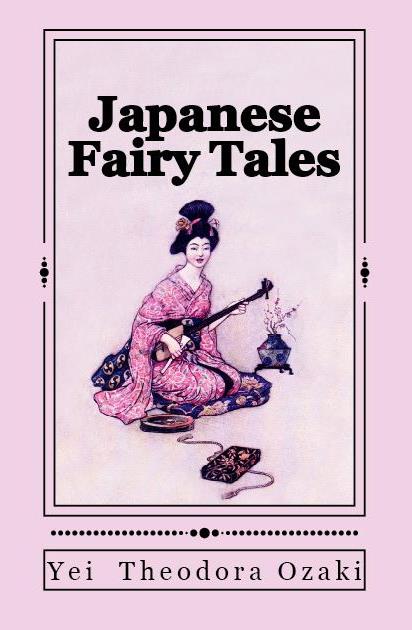Grateful acknowledgment is due to Mr. Y. Yasuoka, Miss Fusa Okamoto, my brother Nobumori Ozaki, Dr. Yoshihiro Takaki, and Miss Kameko Yamao, who have helped me with translations.
The story which I have named "The Story of the Man who did not Wish to Die" is taken from a little book written a hundred years ago by one Shinsui Tamenaga. It is named Chosei Furo, or "Longevity." "The Bamboo-cutter and the Moon-child" is taken from the classic "Taketari Monogatari," and is NOT classed by the Japanese among their fairy tales, though it really belongs to this class of literature.
The pictures were drawn by Mr. Kakuzo Fujiyama, a Tokio artist.
In telling these stories in English I have followed my fancy in adding such touches of local color or description as they seemed to need or as pleased me, and in one or two instances I have gathered in an incident from another version. At all times, among my friends, both young and old, English or American, I have always found eager listeners to the beautiful legends and fairy tales of Japan, and in telling them I have also found that they were still unknown to the vast majority, and this has encouraged me to write them for the children of the West.
Y. T. O.
My Lord Bag of Rice:
"Long, long ago there lived, in Japan a brave warrior known to all as Tawara Toda, or "My Lord Bag of Rice." His true name was Fujiwara Hidesato, and there is a very interesting story of how he came to change his name.
One day he sallied forth in search of adventures, for he had the nature of a warrior and could not bear to be idle. So he buckled on his two swords, took his huge bow, much taller than himself, in his hand, and slinging his quiver on his back started out. He had not gone far when he came to the bridge of Seta-no-Karashi spanning one end of the beautiful Lake Biwa. No sooner had he set foot on the bridge than he saw lying right across his path a huge serpent-dragon. Its body was so big that it looked like the trunk of a large pine tree and it took up the whole width of the bridge. One of its huge claws rested on the parapet of one side of the bridge, while its tail lay right against the other. The monster seemed to be asleep, and as it breathed, fire and smoke came out of its nostrils.
At first Hidesato could not help feeling alarmed at the sight of this horrible reptile lying in his path, for he must either turn back or walk right over its body. He was a brave man, however, and putting aside all fear went forward dauntlessly. Crunch, crunch! he stepped now on the dragon's body, now between its coils, and without even one glance backward he went on his way. "
































